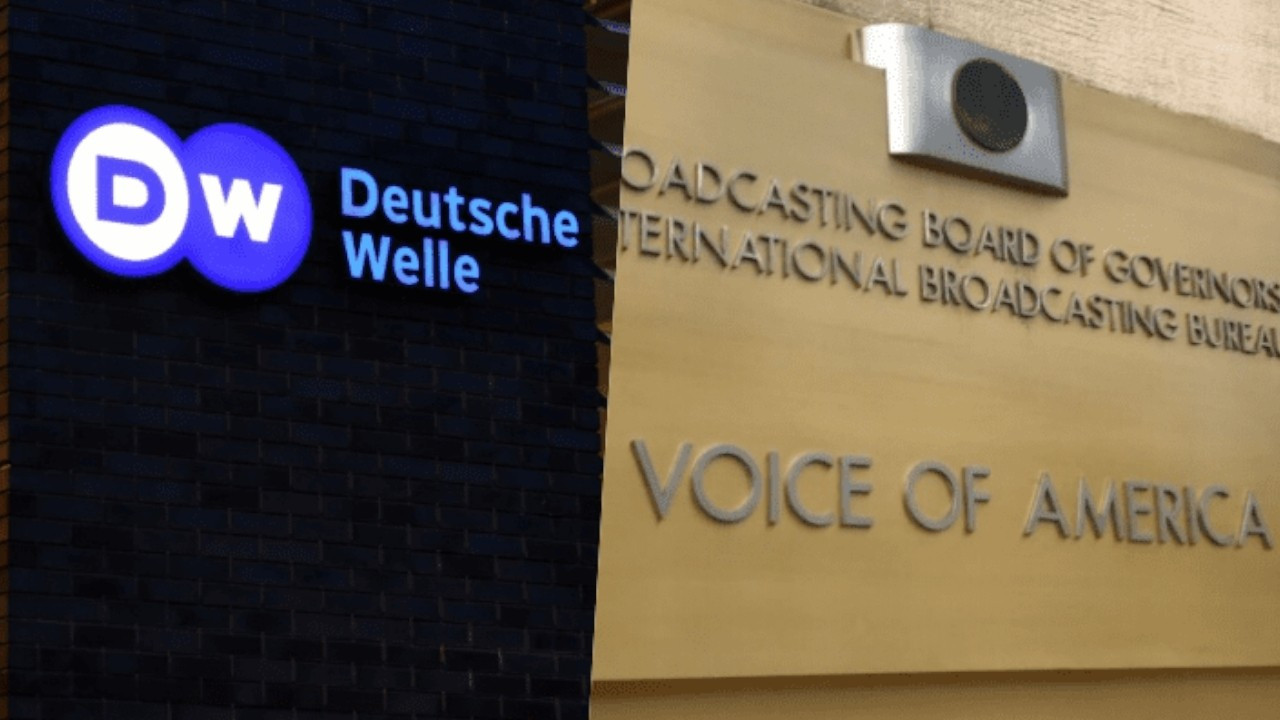Turkey’s media watchdog seeks to block access to Euronews, VOA, DW
Turkey's media watchdog RTÜK will apply to the court to block access to the Turkish language websites of Voice of America, Deutsche Welle, and Euronews after they did not apply for a broadcast license within the specified 72 hours, RTÜK opposition member İlhan Taşçı announced. “Press freedom and the final word are now in the judiciary's hands,” Taşçı said.
Duvar English
On Feb. 21, Turkey's Radio and Television Supreme Council (RTÜK) announced that it gave 72 hours to the Turkish language websites of Voice of America (VOA), Deutsche Welle (DW) and Euronews to continue their publication in Turkey.
RTÜK said that it would otherwise block access to the sites. None of the three websites have applied to have a broadcasting license within the specified time limit.
On Feb. 22, VOA and DW announced that they will not apply to get a license from RTÜK and appeal the decision.
RTÜK will apply to the Ankara Criminal Court of Peace with a request to block access to the websites, RTÜK’s member from the main opposition Republican People’s Party (CHP) İlhan Taşçı announced.
“Press freedom and the final word are now in the judiciary's hands,” Taşçı said on Twitter.
2- RTÜK’ün sitelerin erişimini engelleme istemini Ankara Sulh Ceza Hakimliği ya kabul ya da reddedecek.
— İlhan Taşcı (@ilhantasci) February 24, 2022
Hakimlik, RTÜK’ün erişimin engellenmesi talebini yerinde bulursa haber siteleri bu karara karşı bir üst mahkemeye itiraz edebilecek.
Basın özgürlüğü de son söz de artık yargıda
Meanwhile, the spokesperson of the United States Department of State Ned Price criticized RTÜK's move.
“The U.S. is concerned by the Turkish Radio and Television Supreme Council's decision to expand government control over free press outlets by applying broadcasting requirements to VOA Turkish & other online outlets. A free media is essential to a robust democracy,” Price tweeted on Feb. 23.
Price's remarks were slammed by Turkish Presidential Communications Director Fahrettin Altun.
“Sovereignty and reciprocity are cornerstones of international relations. The U.S. does not get to criticize Türkiye’s regulations whilst regulating the activities of foreign media organizations on American soil. The age of inequality in bilateral relations is over,“ Altun tweeted on Feb. 24.
Sovereignty and reciprocity are cornerstones of international relations. The U.S. does not get to criticize Türkiye’s regulations whilst regulating the activities of foreign media organizations on American soil. The age of inequality in bilateral relations is over. https://t.co/cynwC0Alaj
— Fahrettin Altun (@fahrettinaltun) February 24, 2022
Digital platforms are under the authority of RTÜK as part of a regulation that passed on Aug. 1, 2019. Broadcasting corporations can't operate without getting licenses from RTÜK as part of the amendment.
In line with Law 6112, RTÜK licenses television channels, radio stations, and video-on-demand content in addition to monitoring their content.
As part of the regulations, companies are forced to remove the content deemed inappropriate by RTÜK.

 Deutsche Welle and Voice of America will appeal against licensing in TurkeyMedia
Deutsche Welle and Voice of America will appeal against licensing in TurkeyMedia US urges Turkey to respect freedom of press after move against int'l news websitesDiplomacy
US urges Turkey to respect freedom of press after move against int'l news websitesDiplomacy Turkey's media watchdog orders int'l news websites to apply for licenseMedia
Turkey's media watchdog orders int'l news websites to apply for licenseMedia